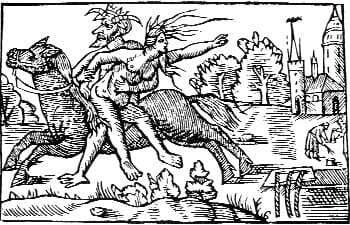The Rose and the Briar

The emigrants who left Great Britain for America brought their ancient songs with them. As the songs gained citizenship in a new country, they evolved, with new shoots growing from the old wood. The cowboy song “Streets of Laredo,” for instance, has its root in an old ballad (variously “The Unfortunate Rake” or “The Dying Soldier”) about a syphilis epidemic that ravaged the British isles. “Will the Circle be Unbroken” was claimed by A.P. Carter of the famous Carter Family, but its chorus was carried nearly intact from a much older English song.
Some of the old songs have a complicated history and a varied pollination. “Matty Groves,” for instance, a bloody tale of adultery avenged, came to its maturity in England as “Little Musgrave” and “Lady Darnell,” then passed on to America (where some iterations allow the star-crossed lovers to live). But it was “a degenerate American version” that was covered by the English folk-rock group Fairport Convention.
Many of the best English ballads (but not the dirty ones) were preserved by the relatively priggish Harvard professor Francis J. Child in the late 19th century. The father-and-son team of John and Alan Lomax later collected songs and made early ?eld recordings.
Traditional music received another boost when the eccentric Harry Smith produced his revelatory Anthology of American Folk Music (released on Folkways in 1952). Without Smith, many of the old recordings might have been lost, which excuses the fact that the collection was originally what we would think of today as a “bootleg.”
The Rose and the Briar is a fascinating and occasionally frustrating collection of essays, short stories and even illustrations about some of the more famous ballads. The editors could have put more effort into their introduction, which name-checks Lomax and Child but never puts their colorful work in any context. An appendix with song lyrics would have also been helpful.
-

-

-

-

-

-

-

-

-

-

-

-

-

-

-

-

-

-

-

-

-

-

-

-

-

-

-

-

-

-

-

-

-

-

-

-

-

-

-

-








































